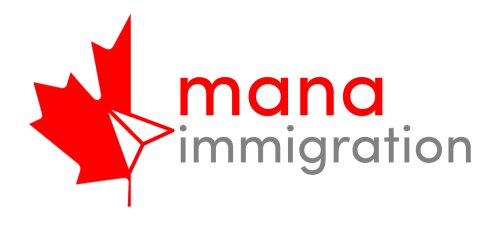Best New Business Formation Lawyers in Shiraz
Share your needs with us, get contacted by law firms.
Free. Takes 2 min.
List of the best lawyers in Shiraz, Iran
About New Business Formation Law in Shiraz, Iran
New business formation in Shiraz, Iran, is influenced by a combination of local, national, and international laws and regulations. The city provides a rich environment for entrepreneurs, with a variety of sectors ripe for development. As part of the country's ongoing efforts to encourage economic growth and private sector involvement, Iran has made certain strides in simplifying business registration processes. However, understanding and navigating these requirements can be complex, making it essential for individuals looking to start a business in Shiraz to be familiar with the legal landscape.
Why You May Need a Lawyer
Navigating the process of forming a new business in Shiraz often requires expertise in local laws and regulations. People may require legal help due to several reasons:
- Understanding the various types of business entities and their implications on liability and taxes.
- Navigating the administrative processes involved in registering a new business with local authorities.
- Drafting and reviewing contracts and agreements necessary for daily operations.
- Ensuring compliance with labor laws and other regulatory requirements.
- Resolving any disputes that may arise during the establishment or operational phases of the business.
Local Laws Overview
Forming a new business in Shiraz is subject to several key local laws and regulatory requirements:
- Business Entity Types: Understanding the differences between sole proprietorships, limited liability companies, and partnerships, and knowing how each type affects liability, taxation, and management.
- Registration Requirements: Businesses must register with the Economic Affairs and Finance Department, and there can be specific requirements depending on the nature of the business.
- Licensing: Certain businesses require special permits or licenses, and it is crucial to identify these requirements early in the planning phase.
- Labor Laws: Compliance with national labor laws is mandatory, affecting hiring, wages, and workplace safety standards.
- Taxation: Businesses are subject to national taxation laws, and understanding these is key to ensuring financial compliance.
Frequently Asked Questions
What types of business entities can I establish in Shiraz?
You can establish several types of business entities in Shiraz, including sole proprietorships, partnerships, joint stock companies, and limited liability companies, each with its own legal requirements and implications.
How long does it take to register a business in Shiraz?
The time can vary depending on the type of business and the completion of necessary documents, but typically, it can take several weeks to complete the registration process.
What are the main steps involved in registering a business?
The primary steps include deciding on a business structure, registering with the relevant governmental authorities, securing necessary licenses and permits, and fulfilling any additional industry-specific requirements.
Are there any incentives for foreign investors starting a business in Shiraz?
Yes, foreign investors are often eligible for various incentives, which can include tax exemptions, reduced tariffs, and relaxed restrictions on foreign ownership, especially in areas earmarked for development.
Do all businesses in Shiraz require special permits or licenses?
Not all businesses require special permits, but certain industries, such as healthcare and construction, often have additional licensing requirements.
How can I ensure compliance with labor laws for my new business?
Consulting with a legal expert who specializes in labor laws in Iran can help ensure your hiring practices, employee contracts, and workplace policies are compliant with the regulations.
Is it mandatory to have a local partner to start a business in Shiraz?
While not always mandatory, having a local partner can be advantageous in navigating regulatory requirements and cultural nuances.
What are the penalties for non-compliance with business regulations?
Penalties can vary but may include fines, operational restrictions, or revocation of business licenses depending on the severity and nature of the violation.
How important is it to have contracts drafted or reviewed by a lawyer?
It is crucial as a lawyer will ensure contracts comply with local laws and adequately protect your interests, potentially preventing costly disputes in the future.
What ongoing legal obligations should I be aware of after starting my business?
Ongoing legal obligations may include tax filings, renewals of licenses, and updates on any changes in business structure or operations in compliance with local law.
Additional Resources
Here are some resources and organizations that might be helpful for legal advice regarding new business formation in Shiraz:
- Chamber of Commerce, Industries, Mines, and Agriculture: Provides support and resources for businesses in Shiraz.
- Department of Economic Affairs and Finance: Offers guidance on taxation and finance-related regulations.
- Iran Investment Organization: A valuable resource for foreign investors planning to start a business in Iran.
- Legal Firms in Shiraz: Consultations with local law firms can provide tailored advice and assistance in legal matters.
Next Steps
If you need legal assistance in forming a new business in Shiraz, the following steps are recommended:
- Research: Gather as much information as possible about the type of business you wish to establish and the associated legal requirements.
- Consult a Lawyer: Seek guidance from legal professionals who specialize in business law in Shiraz to understand specific needs and associated risks.
- Prepare Required Documentation: Work with your lawyer or a legal consultant to prepare and submit all necessary documents for business registration.
- Stay Informed: Keep up with any changes in local laws that may affect your business operations and legal compliance.
Lawzana helps you find the best lawyers and law firms in Shiraz through a curated and pre-screened list of qualified legal professionals. Our platform offers rankings and detailed profiles of attorneys and law firms, allowing you to compare based on practice areas, including New Business Formation, experience, and client feedback.
Each profile includes a description of the firm's areas of practice, client reviews, team members and partners, year of establishment, spoken languages, office locations, contact information, social media presence, and any published articles or resources. Most firms on our platform speak English and are experienced in both local and international legal matters.
Get a quote from top-rated law firms in Shiraz, Iran — quickly, securely, and without unnecessary hassle.
Disclaimer:
The information provided on this page is for general informational purposes only and does not constitute legal advice. While we strive to ensure the accuracy and relevance of the content, legal information may change over time, and interpretations of the law can vary. You should always consult with a qualified legal professional for advice specific to your situation.
We disclaim all liability for actions taken or not taken based on the content of this page. If you believe any information is incorrect or outdated, please contact us, and we will review and update it where appropriate.










